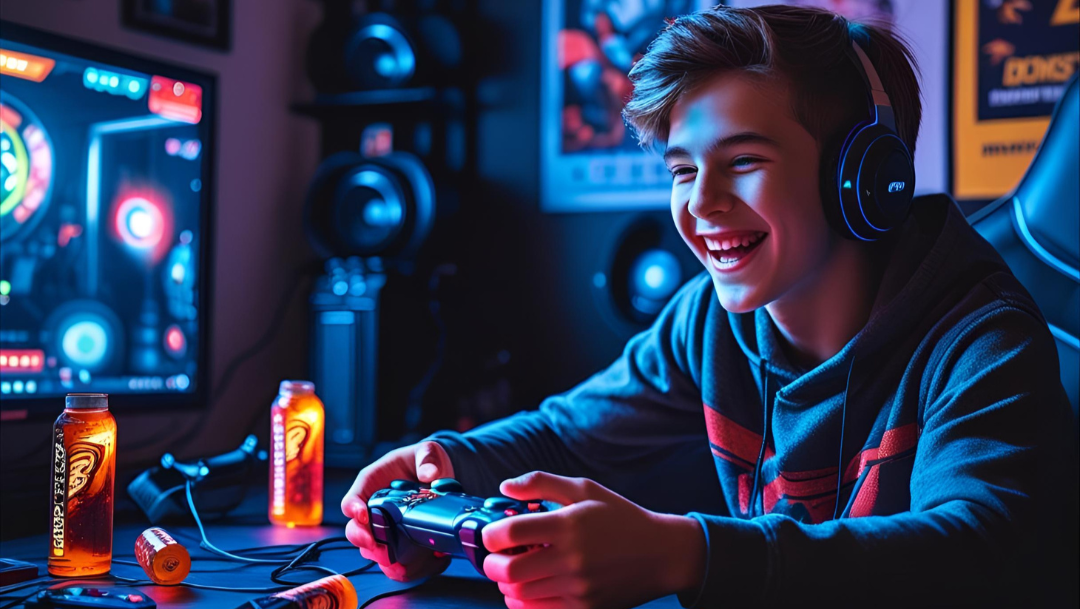
🎮 Gaming Addiction vs. Passionate Play: Understanding the Fine Line
In a world where gaming is more mainstream than ever, distinguishing between healthy enthusiasm and harmful overuse has become increasingly important. The global video game industry has exploded into a multi-billion-dollar enterprise, with millions of players—young and old—spending hours immersed in virtual worlds. But when does fun turn into a problem?
A 2020 study titled "Gaming addiction, problematic gaming and engaged gaming," published in Addictive Behaviors Reports, offers critical insights into the psychological landscape of gamers. The researchers set out to answer a key question: Can we distinguish between gamers who are simply highly engaged and those who are genuinely struggling with gaming addiction or problematic use?
What Did the Study Examine?
The study focuses on three primary types of gaming behavior:
1. Gaming Addiction – This involves compulsive gaming habits that interfere significantly with a person’s daily life. These players exhibit symptoms similar to other behavioral addictions: withdrawal, tolerance, and continued use despite negative consequences.
2. Problematic Gaming – While not meeting the full criteria for addiction, problematic gamers still experience negative impacts such as poor academic performance, social withdrawal, or family conflict as a result of their gaming habits.
3. Engaged Gaming – These individuals spend a lot of time gaming, but their play does not result in functional impairments. In essence, they are passionate about gaming without the harmful side effects.
The researchers used psychometric testing and detailed questionnaires to explore traits such as impulsivity, emotion regulation, and mental health markers across these three groups.
Key Findings
One of the most significant insights from the study is that high engagement in gaming is not inherently problematic. Engaged gamers might play as much as those with addictive tendencies, but they maintain healthy control over their behavior. They can step away from the game without distress, manage their time effectively, and do not experience the real-life consequences that characterize addiction.
On the other hand, individuals classified as problematic or addicted gamers were more likely to struggle with poor emotion regulation, higher impulsivity, and mental health challenges such as anxiety or depression. These psychological traits often exacerbated their compulsive gaming behaviors, creating a cycle that is hard to break without intervention.
Why This Distinction Matters
This differentiation between types of gamers is not just academic—it has real-world implications. In many cases, heavy gaming is immediately labeled as unhealthy, leading to misdiagnoses or unnecessary concern. The study emphasizes the importance of context and consequences. For example, someone who games for six hours a day but maintains good grades, friendships, and emotional balance likely doesn’t need treatment.
Conversely, a person who spends similar time gaming but exhibits deteriorating school performance, social isolation, or emotional distress may benefit from psychological support.
Practical Applications
For parents, educators, and clinicians, the findings offer a framework to better assess gaming behavior. Instead of focusing solely on time spent gaming, attention should be given to:
• Emotional responses when not gaming (e.g., irritability, anxiety)
• Impact on daily responsibilities and relationships
• The player’s level of control over their gaming behavior
Recognizing these signs can help stakeholders differentiate between a healthy hobby and a harmful habit.
Moreover, the study suggests that treatment should go deeper than just limiting screen time. Addressing underlying issues—like impulse control, emotional instability, or coping strategies—is essential. Therapies such as CBT, mindfulness practices, and supportive tools all play a role in recovery.
A Modern Support Option
In cases where intervention is needed, tools like Game Limiter can help families and individuals regain structure. By encouraging boundaries without resorting to harsh restrictions, Game Limiter supports the kind of balanced relationship with gaming that this study points toward. When used alongside psychological strategies, it can be part of a broader toolkit to support addicted or at-risk gamers.
Conclusion
The line between gaming as a passion and gaming as a problem can be thin, but it is navigable with the right tools and understanding. The 2020 study sheds light on this delicate balance and encourages a more informed, compassionate approach to gamers and their behaviors. By focusing on emotional health and functional impact rather than just screen time, we can better support individuals in enjoying games without letting them take over their lives.
Ultimately, the goal isn't to discourage gaming, but to promote healthier relationships with it—for the sake of well-being, not control.